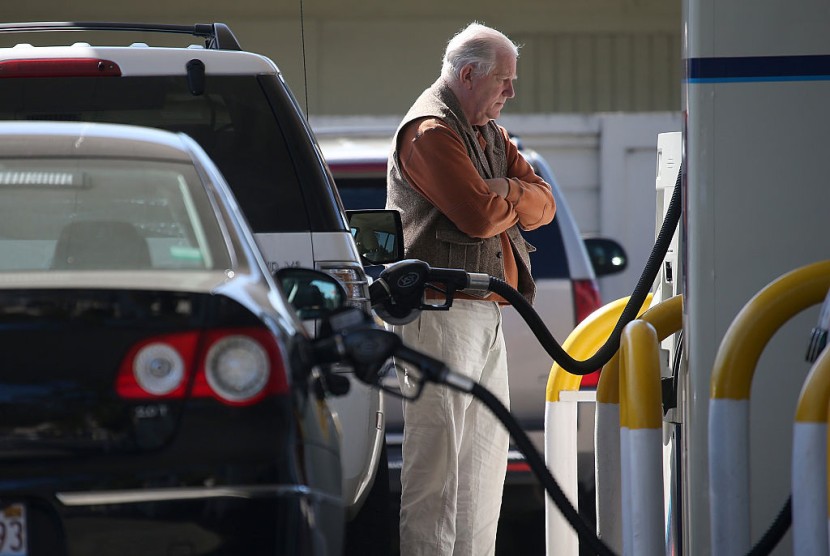
After the world's oil-producing nations indicated this week that they were reducing output, gas prices are once again slowly rising throughout the United States.
Prices had been declining across the nation for almost 100 days after they peaked as a result of the conflict in Ukraine and ongoing supply-chain disruptions. However, following last week's announcement by OPEC+ to reduce its output by 2 million barrels, gas prices in the US rose once more on Monday, reaching an average of $3.92.
Gas Prices Likely to Continue to Increase
Prices are up considerably more in California, where a gallon cost an average of $6.33 on Monday due to Gov. Gavin Newsom's allegations of price gouging. Prices are averaging $4.35 in Michigan, where a fire destroyed a significant petroleum factory.
However, Valero has retaliated by claiming that California's laws and taxes are to blame for the state's high pricing. According to Patrick De Haan, the chief petroleum analyst at GasBuddy, the current rise in crude oil prices is likely to result in a further increase in gas prices.
According to De Haan, prices might increase by as much as $0.30 from their September lows, which would bring the price of a gallon back up to $4. As per NBC News, Andy Lipow, owner of the consulting firm Lipow Oil Associates LLC, has stated that he anticipates US drivers would soon have to pay $4 per gallon.
He stated that the lower prices have increased demand, which has resulted in a sharp decline in gasoline supplies across much of the United States in a message to investors on Monday.
The Biden administration is now considering a ban on the export of refined products due to the low supply, but analysts argue that this would harm European partners who are already suffering from increasing prices brought on by the conflict in Ukraine.
OPEC+ Oil Cut Effect in US
Additionally, President Joe Biden is thinking about increasing production in communist Venezuela and other countries with which the United States has worsening relations. Even while prices around the country were falling, California prices had already risen to absurd levels last month, and now state officials want to know why.
David Hochschild, chair of the California Energy Commission, demanded to know why gas prices have increased despite a sharp downturn in global crude prices, no significant unplanned refinery outages in the state, and no increases in state taxes or fees in a letter to oil executives on September 30.
In response, Scott N. Folwarkow, vice president of state government affairs for Valero, claimed that the businesses had engaged in price conspiracies, noting that a federal judge had found no support for such claims.
He acknowledged that Valero had scheduled maintenance work, but said that the business had done it in accordance with its contractual obligation. He then attributed the low inventory levels to post-COVID demand and a lack of supply, according to FOX Business.
Folwarkow further attributed California's higher prices to the fact that it has the most expensive operating environment in the nation and a very unfriendly regulatory environment for refining. He claimed that state measures that make it challenging to expand refining capacity and have halted supply programs to reduce refineries' operational costs have made the situation worse.
Following the letter's release on Friday, California Governor Gavin Newsom announced that he would convene a special session of the state legislature in December to enact a new tax on oil industry profits as retaliation for what he called their rank price gouging.
Since Newsom stated that he is still working out the specifics with legislative leaders, it is still unclear how the tax would operate. However, he made it clear on Friday that he wants the money returned to taxpayers, maybe by using the proceeds from the new tax to provide rebates.
Prices in Michigan increased by 19 cents from a week earlier as a result of a refinery fire in Toledo, Ohio that claimed two lives. The BP-Husky Toledo plant refines about 160,000 barrels per day, but given that the fire is still under investigation, it might not reopen until December. This might result in a months-long shortage of goods in the Midwest.
Costco customers, for example, might have better pricing constancy. The company's fuel purchasing approach enables it to maintain constant prices, according to CFO Richard Galanti, who spoke on the company's earnings call for the second quarter last month, Daily Mail reported.
Related Article: New $1,400 Stimulus Check: Who's Eligible for Fresh Rounds of Payments from Biden Administration?
@YouTube
© 2025 HNGN, All rights reserved. Do not reproduce without permission.








